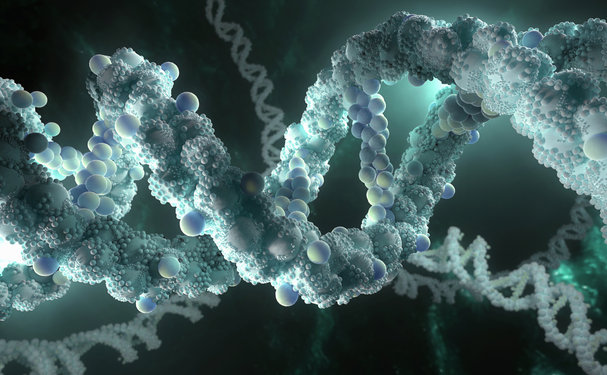
Credit: Ian Cuming/Getty
Designer babies, the year’s most talked about story from a Nature Index-tracked journal
A gene-editing breakthrough topped all other papers for online attention.
29 December 2017

Ian Cuming/Getty
The ability to genetically engineer humans is up there with talking to aliens as one of the most hotly anticipated would-be transitions from science fiction to objective fact.
So it was big news in August when a team of researchers revealed in a landmark Nature paper that they had corrected a disease-causing mutation in human embryos. The research quickly stole the spotlight online, triggering heated discussions about ethics and ‘designer babies’.
The controversial study scored a whopping Altmetric attention score of 4,689, beating all other articles in journals included in the Nature Index. It also took fourth place in Altmetric’s Top 100 Articles 2017 list.
The paper was just behind studies on mortality rates in patients treated by female doctors (Jama Internal Medicine), how work-related stress affects mental health in PhD students (Research Policy), and the link between low-fat diets and early deaths (The Lancet).
Shoukhrat Mitalipov of the Oregon Health and Science University and colleagues targeted a mutation responsible for hypertrophic cardiomyopathy, a heritable heart condition that causes sudden death in young athletes.
Using the CRISPR-Cas9 system, the researchers safely repaired the mutation in 72% of the embryos, a significant improvement on previous efforts. The study was the first human embryo gene-editing experiment carried out in the United States.
This is an inflection point in human evolution, both wonderful and terrifying. Many economic and ethical implications to consider, ASAP. https://t.co/iCBhwhsKz0
— Andrew W. Lo (@AndrewWLo) August 13, 2017
Almost 300 news outlets leapt on the story, including The New York Times, The Guardian and The Washington Post. The headline on online news outlet Vox summed it up succinctly: “This is huge”. Slate called for debate: “The public need to weigh in on the ethics of genetically engineering humans”.
“How far is our society from genetically modifying people like Microsoft Word documents?”, pondered Bruce Y. Lee of the Johns Hopkins Bloomberg School of Public Health in a Forbes opinion piece.
More than 4,000 users shared the paper on Twitter, prompting a deluge of reactions with trending hashtags such as #CRISPR, #designerbabies and #bioethics.
My bioethics lectures for next semester need rewriting: Correction of a pathogenic gene mutation in human embryos https://t.co/i4vbpTVhim
— Peter Lund (@lundpa) August 24, 2017
So finally this famous Nature paper on #CRISPR in human embryos is out. Let’s have a look at it ! https://t.co/fweuuBGfjr pic.twitter.com/knwyIrxxX8
— Gaetan Burgio (@GaetanBurgio) August 2, 2017
This article is the first in a series about the papers in journals tracked by the Nature Index that gained the most online attention in the past year. Altmetric is part of Digital Science, a consultancy in London operated by Holtzbrinck Publishing Group, which also has a share in the publisher of the Nature Index.
